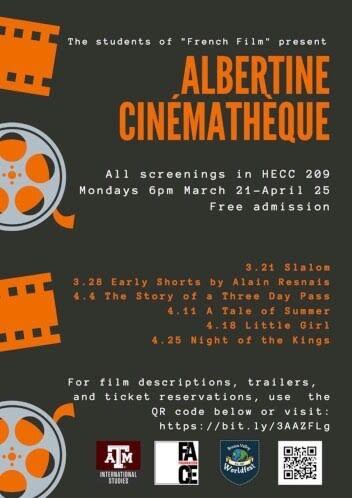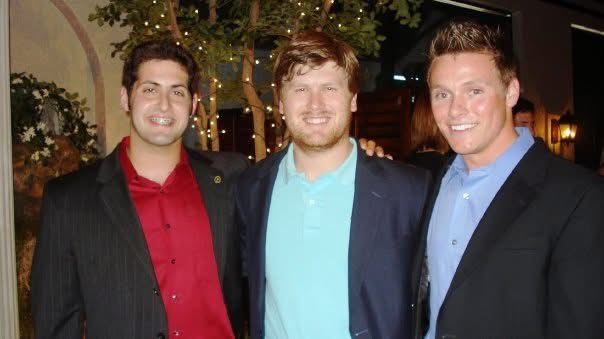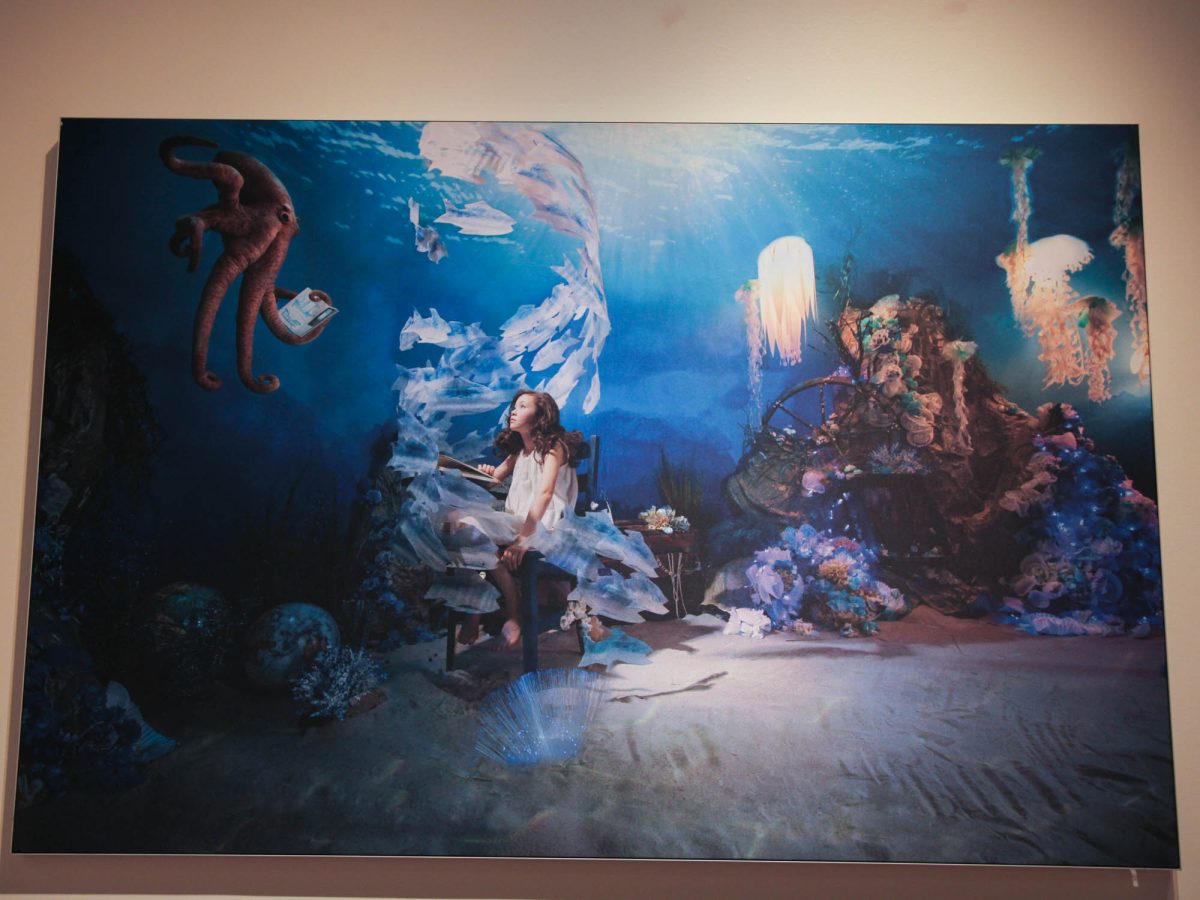Despite all the glitz and glamor of Paris, French cinema is typically left out of the limelight, an art form that is frequently overlooked and undervalued. Texas A&M’s collaboration with the French-American Cultural Exchange in Education and the Arts initiative, or FACE, is hoping to change this.
The Albertine Cinématheque Film Festival explores contemporary French films typically not shown in Bryan-College Station. FACE’s college grant program, the Albertine Cinématheque — an on-campus, student-led French film festival — takes the big screen on Mondays from March 21 to April 25 in the Harrington Building, Room 209.
Jocelyn Frelier, Ph.D., a visiting assistant professor and ACES fellow at A&M, is the head of the Albertine Cinématheque French film festival on campus. As a visiting professor of French cinema, Frelier said she is thrilled to showcase French culture and French-speaking films to fellow Aggies.
“I applied for and received a festival grant for two purposes: to enrich students’ learning experience in my French Film class and bring the program to the Brazos Valley,” Frelier said.
“I chose the films from the FACE Foundation’s pre-approved list. When selecting the films, I had an eye for curating a list from a variety of historical time periods that provided diverse perspectives and communicated one of the curricular themes from our class.”
According to Frelier, these “diverse perspectives” have molded the French film industry into a new genre in recent years. Now, more than ever, upcoming French films are not shying away from real and challenging political issues.
In a way, French cinema has a legacy that extends across entire movements, Frelier said.
Richard Golsan, international studies professor of European and classical languages, said he believes French artistry has always been heavily involved in politics. Studying and teaching contemporary political issues has always been a passion, Golsan said.
“We find a lot of politics is influenced by passion, love and emotion,” Golsan said. “I think Americans have their own understanding of their own problems related to their cultures, but when you look at foreign films, you get to look into the reality of the country in a different way. The French attitude toward diversity is different from ours. It is ‘not the melting pot,’ but just more about being a citizen of France.”
The Albertine Cinématheque festival is screening several films that further explore these issues, such as “The Story of a Three Day Pass,” “A Tale of Summer” and “Night of the Kings.” Freiler said the vast diversity among the presented films and the uniqueness Albertine Cinémathèque offers to alternative French films would go under the radar in other film classes.
“Because Albertine Cinémathèque highlights some lesser commonly studied titles, it is a great opportunity for students to get exposure to elements of a French film that often don’t benefit from the same curricular inclusion,” Frelier said.“While at first glance it may seem as though this festival attends to a niche area of interest [French film], the truth is there are themes throughout the festival that connect with a variety of interests.”
One example is the documentary “Little Girl,” which IndieWire called “a triumphant portrait” of 7-year-old Sasha. Animal science junior Celin Sperbund is among other French cinema classmates presenting this documentary at the film festival, she said.
“Little Girl is based on a true story of a cisgender male who, at a young age, found out he was born in the wrong body,” Sperbund said. “[Little Girl] is not entertainment [per] se, but it tells us about a very real issue … It’s important for people to understand the experiences others are going through that are not talked about a lot. Instead of holding our own perspective and staying in a tunnel vision, we get a better understanding.”
Admission to each film screening is free and open to the public. For film descriptions, trailers and ticket reservations, visit Albertine Cinémathèque’s Eventbrite collection of events.










